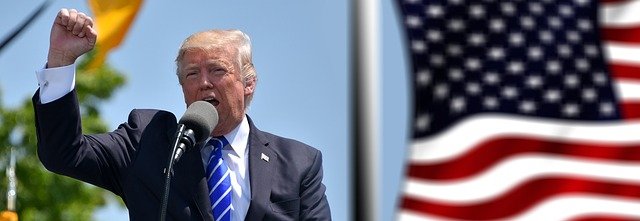
High praise all around for Trump FCC nominee Olivia Trusty
Published on January 20th, 2025
Introduction
Olivia Trusty has received widespread praise following her nomination by former President Donald Trump for a position at the Federal Communications Commission (FCC). Known for her expertise in technology and communications policy, Trusty is seen as a strong candidate capable of influencing the future of U.S. telecommunications. As the industry continues to evolve, the FCC’s role in regulating emerging technologies becomes increasingly vital. This article explores the reasons behind the strong support for Trusty, her qualifications, and her potential impact on U.S. communications policy.
Background and Qualifications
Olivia Trusty has a distinguished career at the intersection of technology, law, and public policy. With experience in both the public and private sectors, she has worked extensively on communications and digital infrastructure. Trusty’s background in law and policy analysis has earned her a reputation for advocating innovation while ensuring consumer protection and fair practices within the telecommunications sector.
Her experience includes working with tech companies and policymakers to create regulations that encourage competition and protect users. Trusty’s ability to understand both technical and regulatory aspects of the industry makes her a uniquely qualified candidate for the FCC.
Bipartisan Support for Trusty
A key aspect of Trusty’s nomination is the broad bipartisan support she has garnered. Both Republican and Democratic leaders have praised her qualifications and her commitment to balancing industry growth with consumer protection. Trusty’s willingness to collaborate with lawmakers across party lines has helped her build trust with various stakeholders in the communications sector. This rare bipartisan backing speaks to her professional integrity and her effective approach to solving complex industry issues.
Potential Impact on U.S. Communications Policy
If confirmed, Olivia Trusty could play a significant role in shaping U.S. communications policy. The FCC oversees important issues such as broadband access, net neutrality, and telecom regulation. Trusty’s leadership could promote innovation while addressing concerns about monopolistic practices and ensuring equitable access to technology.
She is also likely to contribute to closing the digital divide by working to ensure underserved communities benefit from the expansion of digital technologies. Trusty’s approach to fostering competition could lead to more affordable internet access and improved service quality for consumers.
Challenges for Trusty
Despite the high praise, Trusty faces significant challenges. The telecommunications sector is complex, with powerful interests that could hinder reform efforts. Moreover, as technology evolves quickly, Trusty must stay ahead of emerging trends to ensure regulations remain effective.
Navigating the political and economic landscape of communications policy will require diplomacy, technical expertise, and a deep understanding of the needs of both consumers and industry players. Trusty’s ability to balance these competing interests will be crucial to her success at the FCC.
Conclusion
Olivia Trusty’s nomination for the Federal Communications Commission has been widely acclaimed for her qualifications, leadership skills, and bipartisan appeal. As the telecommunications landscape continues to evolve, Trusty’s appointment could be pivotal in shaping future U.S. communications policy. With her expertise and commitment to innovation, she is well-positioned to tackle some of the most pressing issues in the industry. If confirmed, Trusty has the potential to bring a fresh perspective to the FCC, helping the U.S. maintain its leadership in technology and communications.
